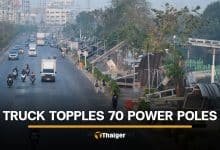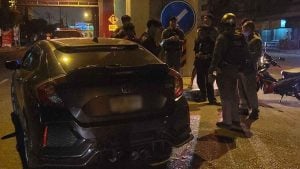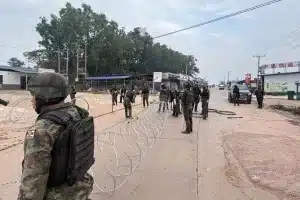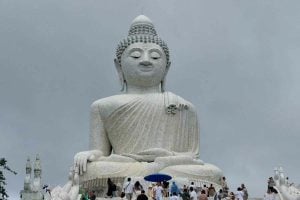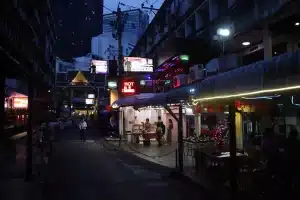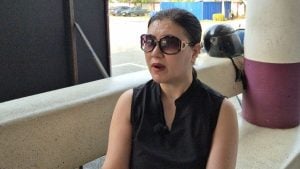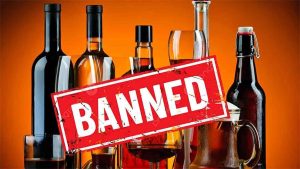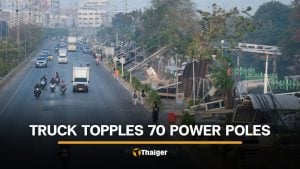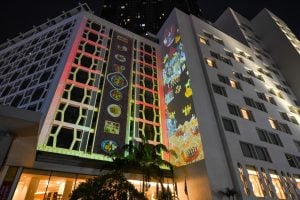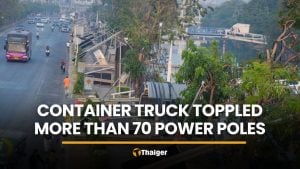Police commander suggests people in Bangkok work at home once a week to reduce vehicle emissions
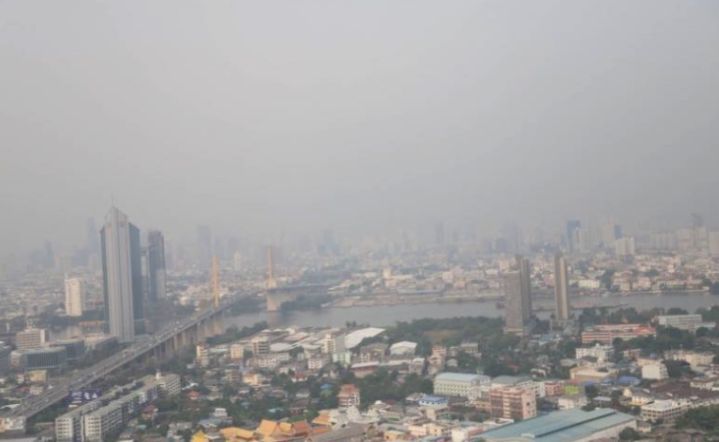
While air pollution in Bangkok has largely been linked to field crop burning in the North, deputy commander of the Royal Thai Police, Damrongsak Kittipraphat, suggests those in the city work from home once a week to keep pollution levels down.
Damrongsak says that if people stay at home like they did during the lockdown, it could help reduce vehicle emissions and improve the city’s air quality. But many have dismissed his idea, saying Bangkok’s haze is from crop burning in other provinces.
This week, the air pollutant PM2.5 reached what’s considered “unhealthy” levels, exceeding the government’s safe threshold of 50 micrograms per cubic metre. PM2.5 levels in Bangkok began to rise last month as farmers burned sugar cane fields in the North, getting ready to harvest their crops, according to the Centre for Air Pollution Mitigation.
While a haze from field crop burning drifts down to Bangkok, the Royal Thai Police in the city are doing what they can locally to cut down PM2.5 levels. Damrongsak says the police have set up 20 checkpoints to check vehicles for black smoke emissions. (Doesn’t look like they’ve cracked down on those old city buses.)
SOURCES: Thai Visa | Bangkok Post
Catch up with the latest daily “Thailand News Today” here on The Thaiger.
Latest Thailand News
Follow The Thaiger on Google News:
